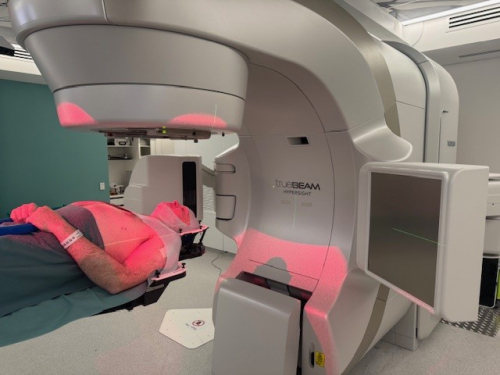Testing AI for skin cancer

Artificial intelligence (AI) could soon become a powerful tool in skin cancer assessment. The Victorian Melanoma Service is currently conducting a trial into the effectiveness of the technology.
Victorian Melanoma Service director Associate Professor Victoria Mar said the Improving Skin Cancer Management With Artificial Intelligence (SMARTI) trial directly compares AI results to that of doctors in the real-world setting.
Diagnostic assessments of skin lesions are made by dermatologists in the clinic, and the computer is then asked to provide a ‘second opinion’.
The accuracy of the algorithm will be assessed in the specialist setting before considering its use in primary care.
“The computer algorithm is trained on thousands of images, just like a doctor might be trained from seeing large numbers of cases,” Professor Mar said.
“But whilst a doctor takes years to build up experience, the computer can learn very quickly from a large training set of images and from there the algorithm can be tweaked to improve accuracy.”
The training data has been provided by Industry collaborator MoleMap, with over five million images available to train and refine the algorithm developed by the Monash University eResearch team.
“Recent studies show that machine learning algorithms have the potential to surpass the diagnostic performance of experts, at least in experimental settings, and the challenge now is how to implement this new technology safely into clinical practice.
“An artificial intelligence system could be used to provide diagnostic support or a ‘second opinion’, or alternatively as a triaging tool before clinician assessment would enable automated risk stratification of individuals and/or lesions. This approach could dramatically improve clinician workload and timely access to specialist care for people requiring urgent attention.”
But it comes with a warning.
“There are two potentially negative implications for clinical practice: first, clinicians may have difficulty upskilling by following the algorithms’ outputs; and second, there exists the potential for deskilling and underperforming due to an over-reliance on technology,” Professor Mar said.
Professor Mar also cautioned against smartphone applications which may be available to the public.
“Some of these provide skin lesion risk assessment, although they may state that they are not intended to be used as a diagnostic device.
“There is concern that, if this is not immediately obvious to the consumer, unregistered applications may be used in lieu of seeking medical advice.”
The SMARTI trial is funded by the Victorian Department of Health and Human Services.


